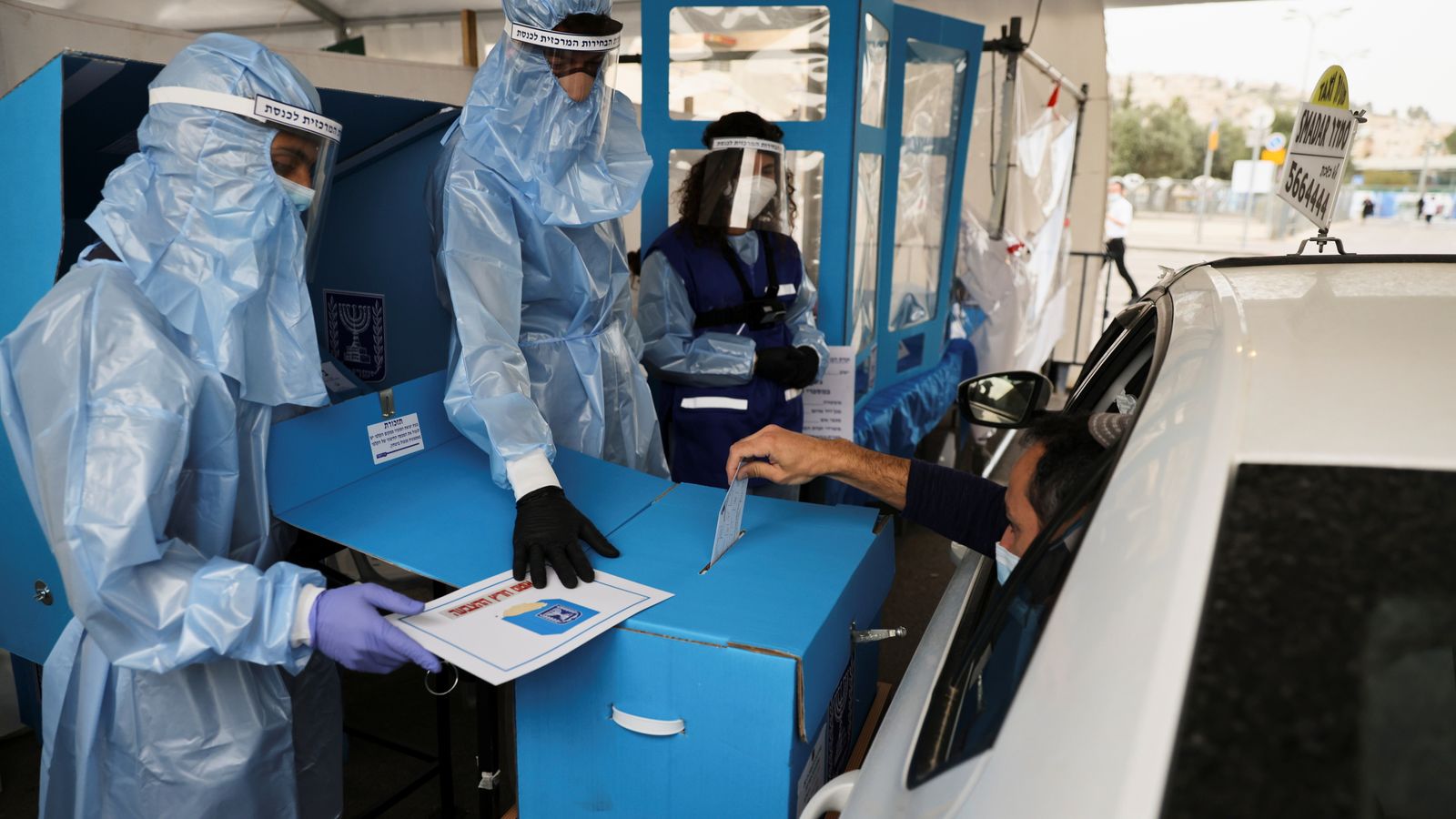Israelis are at the polls again as the country holds its fourth parliamentary election in two years.
The vote is seen as a referendum on the divisive rule of its longest-serving prime minister, Benjamin Netanyahu.
It comes after an emergency power-sharing government formed last year between Mr Netanyahu and his main rival Benny Gantz fell apart, with the vote triggered by a failure to agree a budget.
Mr Netanyahu had made Israel‘s successful vaccination drive the focus of his campaign and also pointed to diplomatic deals struck last year with four Arab states.
Nearly half of Israelis have had two doses, the fastest COVID vaccine rollout in the world apart from Gibraltar.
Opponents however have accused him of mishandling the pandemic and failing to enforce lockdown restrictions on his ultra-Orthodox political allies.
They also say the economy is in a bad state, the unemployment rate high, and that he shouldn’t be leader when he is on trial accused of bribery and abuse of power – something Mr Netanyahu denies.
Special polling stations are being set up so people can vote safely during the pandemic, with drive-through booths for people in quarantine or infected with the virus, and ballot boxes in hospitals.
Mr Netanyahu, 71, has been in power since 2009. His main challenger has emerged as Yair Lapid, a former finance minister in charge of the centrist Yesh Atid party.
Opinion polls show the race is too close to call.
Voter fatigue after the recent previous elections is predicted to contribute to a lower turnout, which stood at 71% in the last poll a year ago.






















